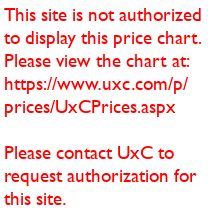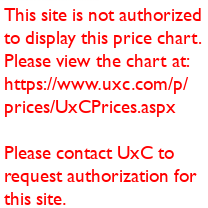Today's nuclear fuel markets require navigating significant uncertainty. Understanding the markets requires looking beyond the supply and demand fundamentals to instead focus on the ever-changing and often complicated issues of government policies and international trade.
When considering the present-day nuclear fuel markets, the only thing one can say with any certainty is that these are uncertain times. On the supply side, trade issues and domestic nuclear fuel cycle initiatives are key factors to watch. Nuclear trade remains highly politicized, injecting unpredictability into the markets. While trade issues have long been the wildcards of the nuclear fuel markets, recent unprecedented events are rapidly altering the foundations of international nuclear commerce.
While there are a multitude of trade issues unfolding in parallel, none approaches the impact of Russia's military invasion of Ukraine, which continues to reshape the underlying fundamentals of every nuclear fuel cycle market, both demand and supply.
On the demand side, many countries are working to satisfy rapidly growing power needs while also addressing climate change, energy security, and other challenges. As a result, many governments are once again focusing on expanding reliance on nuclear energy. Thus, the decisions made about nuclear new build today will shape this industry for decades to come.
UxC's Policy Watch serves as a detailed, accurate, and timely source of information on key policy issues affecting the global nuclear markets. This online information source puts in-depth information and analysis into a complete package right at your fingertips.
What Is Included in This Service?
Policy Watch is primarily comprised of comprehensive quarterly reports. Moreover, subscribers receive online access to background information and updates related to key policy issues affecting the nuclear fuel industry.
Each quarterly report organizes different nuclear policy issues into key topics, which are covered in separate chapters:
- Nuclear Power Policy analyzes the key policy developments - both those that support and hinder nuclear power growth - that impact the global nuclear power industry.
- Nuclear Trade Issues focuses on trade issues affecting both the nuclear power and fuel markets.
- Front End Nuclear Fuel Cycle covers government policies related to the front end of the nuclear fuel cycle - uranium, conversion, enrichment, and fabrication.
- Secondary Supplies addresses non-produced supplies, including government inventories, commercial inventories, mixed oxide fuel (MOX), and reprocessed uranium (RepU).
- Spent Fuel Management includes developments in national policy decisions related to spent fuel management, major milestones toward implementing established policy, and decisions that affect future management.
- Nonproliferation analyzes nonproliferation developments as they pertain to the commercial nuclear fuel cycle.
In addition to four quarterly reports, subscribers will receive timely periodic updates on key developing issues. Moreover, subscribers will receive online access to background information and updates related to key policy issues that affect the nuclear fuel industry.
Each UxC Policy Watch subscription also includes access to a comprehensive list of key relevant documents (including some that are not available on the web).
Policy Watch subscribers also gain access to all of UxC's policy experts who can help guide you through the maze of information.
Comprehensive Coverage

From the early days of the nuclear fuel industry to today, government policy decisions have shaped the way we do business. The governmental and public policy role in the industry remains an important factor in all components of the nuclear fuel market.
There are a multitude of trade issues unfolding in parallel today. The U.S. Section 232 investigation, Iran sanctions, the ongoing fight over the Russian Suspension Agreement (RSA), U.S. trade tensions with China, and Brexit are all developing concurrently and represent a sample of the key developments with the potential to radically alter the nuclear fuel markets. Indeed, the current nuclear market situation highlights how policy issues can have a tremendous impact on nuclear power and all sectors of the nuclear fuel cycle.
Our Q1 2019 Policy Watch report focused on the following topics, among others:
- Resignation of the Kazakh President Nazarbaev
- U.S. DOC revokes antidumping duty order on LES from France
- Section 232 investigation
- Russian Suspension Agreement
- Brexit update
- Nuclear cooperation agreements
- High-Assay Low Enrichment Uranium (HALEU) initiatives
- U.S. federal and state efforts to support at-risk nuclear plants
- Spain's decision on energy transition and nuclear phase-out
- France and UK nuclear power updates
- European energy strategy
- Bulgaria's launch of a Belene tender
- Czech government's new plans for nuclear new build
- Japan nuclear power and reactor restarts update
- China, Taiwan, and South Korea nuclear power policy updates
- DOE shutters MOX Fuel Fabrication Facility
For a full list of topics covered and additional details, please see our table of contents for the full report in Adobe Acrobat PDF format.
Why Purchase This Service?
Policy Watch's primary objective is to provide comprehensive information on and analyses of key nuclear policy developments over the past quarter. The goal is to examine how these various policy decisions influence the supply and demand side of the nuclear markets to provide specialized insight to current participants in the nuclear markets, including suppliers, utilities, government agencies, investors, and financial institutions.
Order Today!
UxC's Policy Watch service is available for immediate purchase. The standard annual price for this in-depth product is US$5,000. Discounts for existing subscribers of other UxC reports may be available.
Please see our product flier in Adobe Acrobat PDF format.

